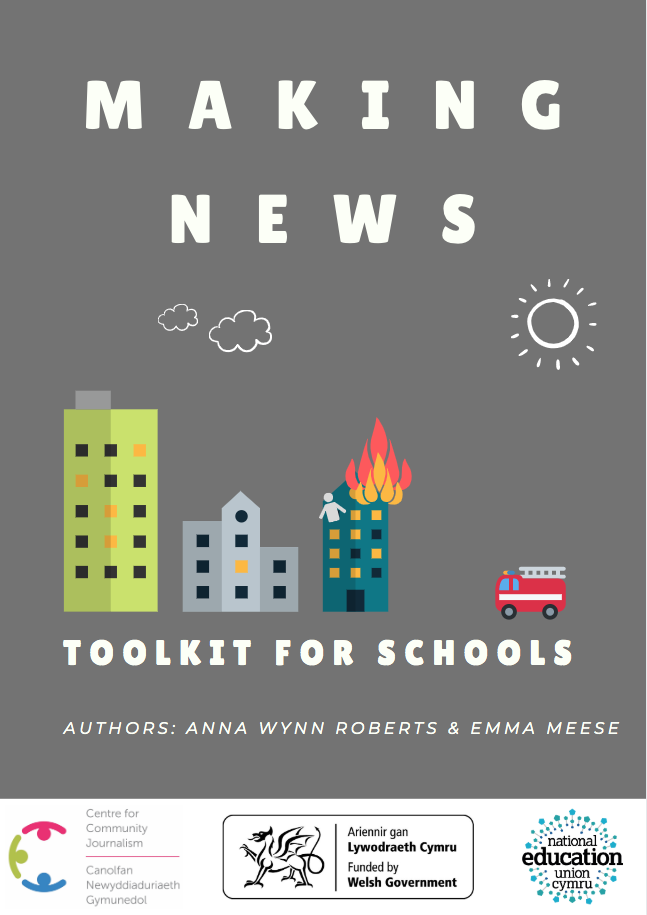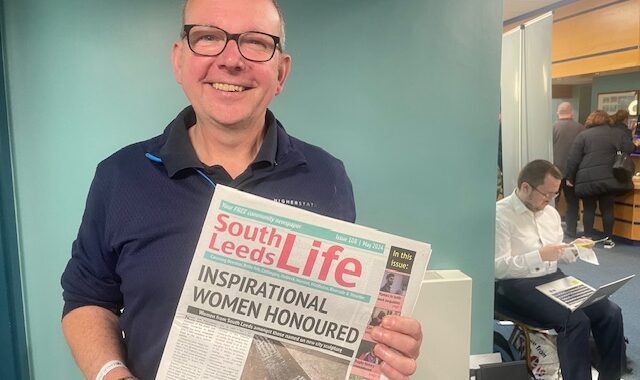Here at the Centre for Community Journalism, we are committed to hyperlocal journalism. Our mission is to support it in all its forms as it goes through major changes.
But we can’t hope to help build the future of community journalism without focussing some of our efforts on the next generation of journalists.
That’s why for the past couple of years, the Centre for Community Journalism has been working with the National Education Union (NEU) Cymru to develop a toolkit to equip primary school children with the skills to examine news and information, how to tell their own stories and become the next generation of news reporters.
We’re now excited to announce that this toolkit will be launched at NEU Cymru’s annual conference in Newport tomorrow (Sat 9th November).
The National Education Union Cymru will launch the ‘Making News Toolkit for Schools’ online resource to its members at their Annual Conference in Newport on 9th November.
In a collaboration between NEU Cymru’s Welsh Government funded Wales Union Learning Fund (WULF) project and Cardiff University’s Centre for Community Journalism (C4CJ), the toolkit is a train-the-trainer pack comprising 10 hands-on sessions which aim to equip primary school pupils with the basics for news reporting. It is a free online resource that is currently available in English and will be available in Welsh by Christmas 2019.
Journalism has been reported as being in crisis for a long time, this toolkit teaches the next generation of citizens to examine news and information, rather than growing up as passive consumers.
It will help combat the spread of so called ‘fake news’ as children will grow into adults equipped with the skills to question and verify any information they are given.
In a digital age, the lessons in the toolkit are essential life skills for engaged citizens of the future. It also, crucially, teaches all children in Wales their voice matters and gives them the skills to tell their own stories.
“I’m delighted that we are able to use NEU Cymru’s Annual Conference as the platform to launch the ‘Making News Toolkit for Schools’ online resource”, said David Evans, Wales Secretary for NEU Cymru. “With the New Curriculum on the horizon, it is the perfect time to share this pack with our members and promote the achievements possible via the Welsh Government’s WULF programme.”
The project is part of Cardiff University’s wider key strategy to work with educational partners and all schools in Wales to support teachers to work towards improved educational attainment.
Emma Meese, Cardiff University’s Director of Community Journalism, said: “This project is very close to my heart. We ran a pilot three years ago in two primary schools in Merthyr and I’m overjoyed, that by working with the NEU’s WULF project, we can now roll out this vital resource to all schools across Wales.”
Toolkit co-author, Anna Wynn Roberts, has a background in video-journalism and documentary-making for Channel 4 and the BBC, but also trained and worked as a teacher.
“I remember how frantic my schedule was, so I wanted to make this as accessible as possible for teachers with each section set out as a teaching plan and a number of interactive resources to draw from”, said Anna Wynn Roberts. “I’d have loved to have had access to a resource like this when I was teaching.”
NEU Cymru WULF Co-ordinator, Beth Roberts, who initiated the development of the written toolkit said: “This practical and hands-on train-the-trainer resource came about after working closely with Emma Meese and Anna Wynn Roberts on other WULF project training activities. This is a really exciting collaboration between C4CJ and NEU Cymru’s WULF project and we’re also grateful to the teachers who piloted it in their schools.”
- The downloadable 80+ page teachers’ guide is divided into 10 lesson plans with an accompanying resource pack featuring teacher slides and pupil activity sheets for each lesson.
- In the digital age, anyone with a mobile phone can take photos and make videos for little or no extra cost. This module teaches pupils how to produce quality, ethical and balanced news reports on issues that are important to them and their community – on devices that they already use on a weekly basis in school. The toolkit makes recommendations for optional accessories that schools can buy easily and cheaply on the high street or online.
- Over the course of the module, pupils learn what makes a story newsworthy and their options for researching their stories. They will understand that information needs to come from multiple, reliable sources and they’ll need to cover the 5Ws – the who, what, why, when and where of a news story.
- As well as learning interviewing skills they’ll learn how to film and edit interviews and sequences that fit around the interviews. Finally, they’ll use that filmed material to create a written piece for print or online.
- The course encourages critical thinking skills in an age where young people are bombarded by unverified stories, images and photographs online. The section on ‘fake news’, copyright, permissions and consent, covers important considerations for everyone who consumes news, not just those making the news, particularly when that ‘news’ is shared on social media.





